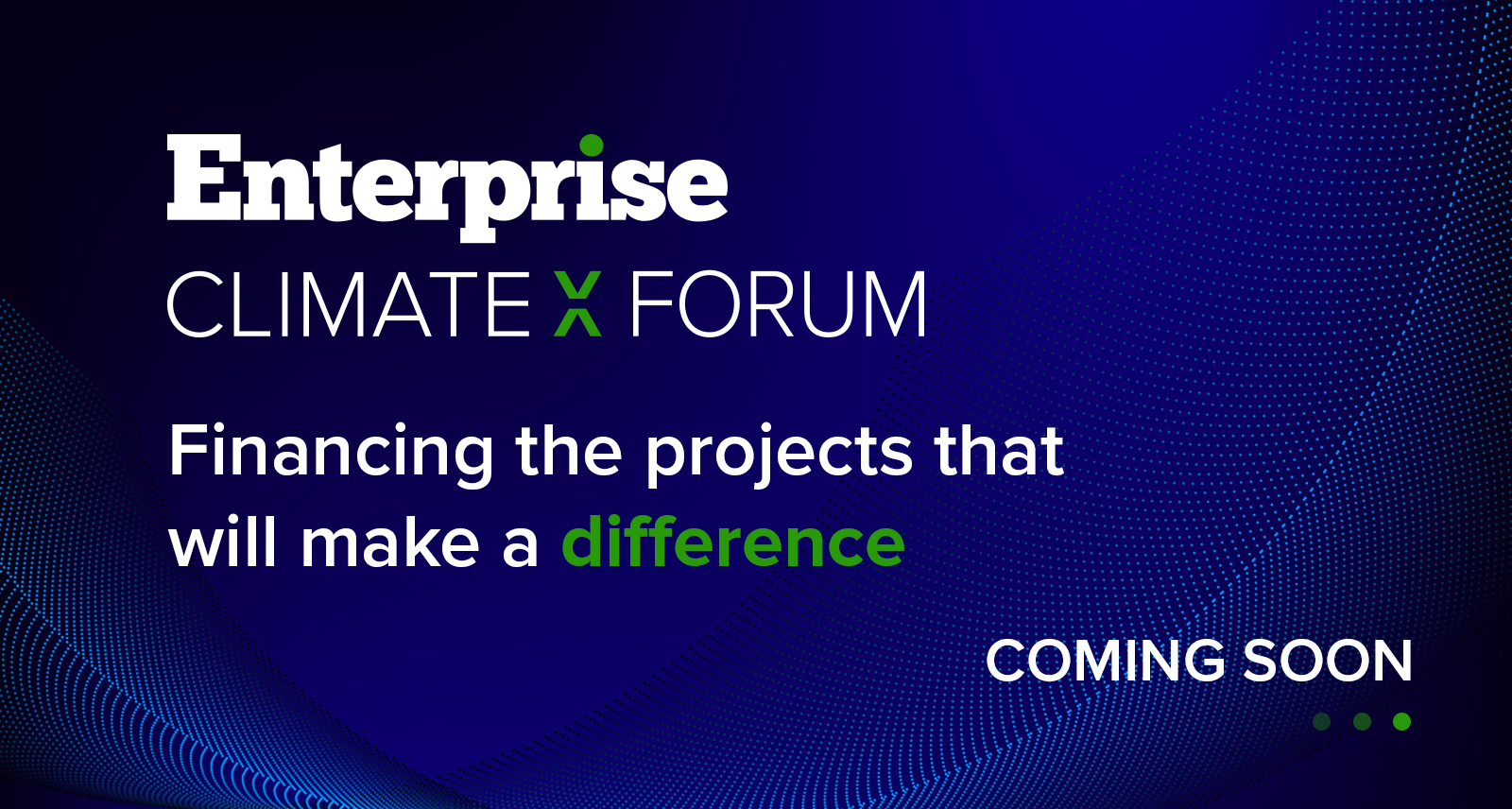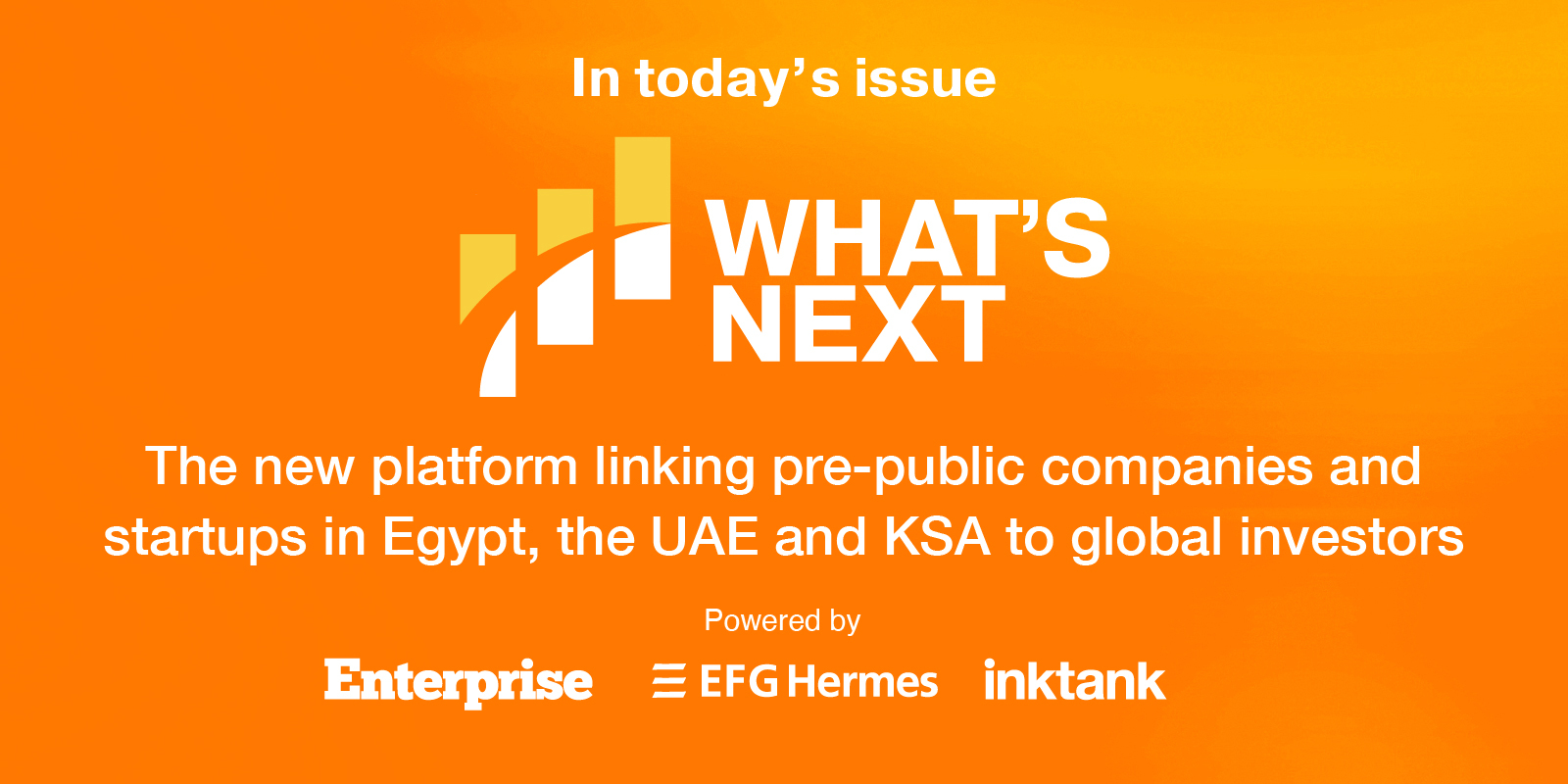- Maait and El Said keep their posts as El Sisi appoints 13 new ministers in cabinet shuffle. (Cabinet Watch)
- CBE seen raising rates this Thursday to curb inflation. (Poll)
- Negm rules out imminent devaluation, says Amer has no plans to step down before end of term. (What We’re Tracking Today)
- Is the Qatar Investment Authority about to follow ADQ + PIF into the EGX? (What We’re Tracking Today)
- Electricity rationing went into effect yesterday across Egypt. Here’s what we know so far. (Economy)
- Egypt could turn to Emirati lenders for up to USD 2.5 bn in financing. (Debt Watch)
- The nation’s ports could be getting some USD 1.3 bn in foreign investment. (Investment Watch)
- Ethiopia completes third GERD filling. (Diplomacy)
- With a long road to profitability, a rethink of the traditional ride-hailing business model is in order. (What’s Next)
- Forget the Fed: What’s going on in emerging markets could be more important for some bond investors. (Planet Finance)

Sunday, 14 August 2022
AM — Big news day: Cabinet shuffle. Neither EGP nor Amer going anywhere, Negm says. Tons of fresh FDI.
TL;DR
WHAT WE’RE TRACKING TODAY
Good morning, friends, and welcome to an exceptionally packed Sunday. We’re going to jump right in
No imminent EGP devaluation: That was the message delivered by CBE deputy governor Gamal Negm in an interview with the state-run Middle East News Agency yesterday. Egypt’s foreign currency shortfall narrowed to USD 400 mn in July from USD 3.9 bn in February due to the central bank’s move to restrict imports, eliminating the need for “a significant reduction” in the exchange rate “in the next stage,” he said. Negm made the comments a few days after Bloomberg came out with a piece detailing recent forecasts by analysts, who expect the currency to fall anywhere between 5% and 23% against the greenback due to rising external pressures.
FACT CHECK- Tarek Amer has no plans to step down before his second term ends in November 2023, Negm told the news agency, apparently in response to posts making the rounds on social media and the tabloid press.
WHAT’S HAPPENING TODAY-
Out with the old, in with the new: The new ministers appointed to the cabinet by President Abdel Fattah El Sisi over the weekend will be sworn in at Ittihadiya today. We have the full story on who’s in and who’s out in this morning’s news well, below.
The Madbouly government’s public consultations on its state ownership policy continue today, with representatives from the financial services sector weighing in. Every Sunday, Tuesday, and Thursday see workshops on how privatization plans will affect specific industries. You can find more details on the schedule of the meetings here.
Ghazl El Mahalla IPO: The retail portion of Ghazl El Mahalla’s mini-IPO wraps today.
CHANGE OF SEASONS- We have about three weeks of summer left. Kids at Cairo American College lead the charge, heading back to school this coming Wednesday, 17 August — and signaling that the end of summer is nigh. BISC and NCBIS go back on 28 August, AIS follows on 1 September, and Alsson on 4 September. Public schools go back on 24 September. Enjoy the relatively smooth morning commute while it lasts, folks…
WATCH THIS SPACE- First ADQ. Then PIF. Now QIA? The alphabet soup of Gulf sovereign wealth funds eyeing investment in Egypt is about to get longer if a report in Al Borsa late last night pans out. Citing people it says have knowledge of the matter, the newspaper claims that the Qatar Investment Authority is in talks with the Sovereign Fund of Egypt (SFE) to purchase stakes in several Egyptian companies in the fintech and renewables sector, including EGX-listed e-payment firms Fawry and e-Finance. The acquisitions could go through within a few weeks, they claimed.
The PIF isn’t done… A few days after investing USD 1.3 bn in four EGX-listed firms, the Saudi Public Investment Fund (PIF) is interested in purchasing equity in Egypt Aluminum (EgyptAlum) and the new hotels company “within weeks,” the newspaper says. The fund could purchase the stake in EgyptAlum through a USD 215 mn capital increase, it added. Then-Public Enterprises Minister Hisham Tawfik had said earlier this year that the state plans to sell a 25-30% stake in EGX-listed EgyptAlum to a strategic investor — and also plans to offer a stake of up to 25% in the company it will create through a merger of seven or eight state-owned hotels.
…and neither is ADQ: The Abu Dhabi-based wealth fund is apparently interested in increasing its stake in Misr Fertilizers Production Company (Mopco), the newspaper claims. ADQ acquired 20% of the state-owned fertilizers company in April and reportedly wants to buy another 10-15%, they said. This would make the company majority foreign owned, coming a few days after the PIF acquired 25% of its shares.
THE BIG STORY ABROAD-
The international press continues to feature prominently the stabbing of Booker-prize winning author Salman Rushdie at a literary event in New York state on Friday. The author is still being treated in hospital, with his agent saying he is on a ventilator, is likely to lose the use of one eye, and has sustained stab wounds to his liver. A 24-year-old man is in police custody for the attack. Rushdie has been the target of death threats — including an Iranian fatwa calling for his killing — since the 1988 publication of his book The Satanic Verses, considered disrespectful by some to Islam. The Financial Times, the New York Times, the Associated Press and the BBC have more.
The global business press are mourning the passing of former co-CEO of Deutsche Bank, Anshu Jain, who died on Friday aged 59 after a five-year battle with cancer. Jain served as co-CEO of the leading German bank between 2012 and 2015, before his contract ended after it was hit with a series of regulatory issues and fines. His most recent role was as president of US financial services firm Cantor Fitzgerald. (CNBC | Financial Times | Bloomberg | Reuters)
|
The Road to COP27: As the clock ticks down towards the all-important COP27 climate conference, Narrative PR is hosting a series of web talks with the organizers, leaders and policymakers shaping the agenda in Sharm El Sheikh this November. UN climate envoy and IMF executive director Mahmoud Mohieldin spoke about climate financing and Egypt’s massive renewable energy potential a few weeks ago. Environment Minister Yasmine Fouad also spoke about how COP27 gives Egypt a chance to showcase its progress and move forward on partnerships in critical industries. Fouad now shares details around the themes and the physical setup of the summit, which will include a “green zone” for civil society, youth organizations and private companies exhibiting their work. Cultural events — including performances and an international fashion show — are also set to run over the course of the summit.
Breaking down the agenda: The climate summit will include a finance day dedicated to discussing innovative financing methods and how developed countries can fulfill a target to provide USD 100 bn of climate finance annually, as well as a water day to tackle the effects of climate change on water resources, Fouad said. The agenda also includes an agriculture day to discuss the issue of food security.
Watch the full interview here (runtime: 6:21).
CIRCLE YOUR CALENDAR-
MNHD shareholders have the final word on SODIC takeover bid: Madinet Nasr Housing and Development will hold a general assembly meeting on Tuesday, 16 August, to decide whether to allow SODIC to conduct due diligence ahead of a potential takeover.
Interest rates: The Central Bank of Egypt will meet to discuss interest rates next Thursday, 18 August.
National Dialogue: The board of trustees overseeing the National Dialogue will hold its next meeting on 27 August. On the agenda: Choosing the rapporteurs for all of the committees and subcommittees of the social, political and economic tracks, and preparing the agenda and topics of discussion for the dialogue.
The Madbouly government will on 1 September begin rolling out new measures designed to bolster the social safety net. Prime Minister Moustafa Madbouly met with ministers yesterday to lay out the timeline for implementing emergency social protection measures to support vulnerable citizens amid surging inflation, cabinet said in a statement.
What’s on the table: The government is planning to add another 450k families to the Takaful and Karama program and raise the personal income tax exemption threshold to EGP 2.5k from EGP 2k, meaning hundreds of thousands of low-earning workers will not pay income taxes.
Check out our full calendar on the web for a comprehensive listing of upcoming news events, national holidays and news triggers.
*** It’s What’s Next day: We have our weekly deep-dive into what makes and shapes pre-listed companies and startups in Egypt, the UAE and KSA, touching on investment trends, future sector insights and growth journeys.
In today’s issue: Earlier this year, Nasdaq-listed mass transit firm Swvl announced it is expediting its timeline to hit profitability by slashing headcount, streamlining operations and cutting the proverbial fat. This change will see the firm shift its operations to focus more on its B2B services and discontinue some unprofitable B2C services. Altogether, the shift is an adjustment of the company’s business model, which followed the standard ride-hailing business structure of narrow (or negative) margins that are partially offset by more profitable segments, while relying on venture capital and public equity investments to stay afloat.
CABINET WATCH
El Sisi appoints 13 new ministers in cabinet shake-up

13 in, 13 out: There will be 13 new faces in the cabinet as of today after the House of Representatives approved a cabinet shuffle over the weekend in an emergency session called by President Abdel Fattah El Sisi. We expect the new ministers to be sworn in at Ittihadiya this morning.
The key changes:
#1- El Sisi has changed his new public enterprises minister as the government puts together a radical privatization program. Cairo Glass Chairman Mahmoud Esmat has been named the new public enterprises minister, replacing Hisham Tawfik, who had held the portfolio since 2018.
Why this matters: The ministry in recent weeks has become central to the Madbouly government’s economic development plans as the crisis triggered by the war in Ukraine has accelerated the need for more investment. The ministry is at the forefront (alongside the ministries of planning and finance) of the government’s ambitious privatization plans, by which it hopes to attract USD 40 bn in fresh investment over the next four years. Leftist members of the House of Representatives cheered Tawfik’s departure — they didn’t like his presiding over the sale of state assets, but we still expect policy stability on this front, so they won’t like Esmat much, either.
#2- There will be new faces at the trade and industry, and tourism ministries: CIB’s retail banking chief, Ahmed Issa, replaces Khaled El Anany at the Tourism Ministry, while Nevine Gamea will make way for Rep. Ahmed Saleh, who had until today headed the House Economic Affairs Committee.
Why this matters: Both ministries have been on the front lines of dealing with the fallout from the Ukraine war and now hold portfolios that will be key to helping shore up our foreign currency flows. Issa takes over a tourism portfolio that is recovering from the exit earlier this year of Ukrainian and Russian visitors; restoring it to its strong, post-pandemic trajectory is a top priority for the state as it looks to restore the industry’s position as one of the nation’s chief FX generators — and a key driver of job creation. Saleh arrives at the Trade Ministry as it places greater emphasis on import substitution industrialization, and overseeing new import restrictions that have been deployed as one of the chief policy tools to shore up the country’s supply of hard currency.
Staying put: Holders of some of the most prominent government portfolios are staying on in their jobs. Among them: Finance Minister Mohamed Maait, Supply Minister Ali El Moselhy, Planning Minister Hala El Said, Environment Minister Yasmine Fouad, and International Cooperation Minister Rania Al Mashat, among others. Returning sovereign ministry chiefs: Interior Minister Mahmoud Tawfik, Defense Minister Mohamed Zaki, Foreign Minister Sameh Shoukry, and Justice Minister Omar Marwan.
#3- Some parents will cheer the departure of Education Minister Tarek Shawki, who ran headlong into wide opposition from teachers and parents for education reforms that many of us thought were very much exactly what the doctor ordered.
In total, there will be 13 new faces among the 33 members of Prime Minister Moustafa Madbouly’s cabinet:
- CIVIL AVIATION– Mohamed Abbas Helmy replaces Mohamed Manar. Helmy was most recently the commander of Egypt’s Air Force.
- CULTURE- Nevine El Kilany replaces Enas Abdel Dayem. El Kilany was serving as dean of the Higher Institute of Art Criticism at the ministry’s Academy of Arts.
- EDUCATION- Reda Hegazi replaces Tarek Shawki. Hegazy was previously the deputy minister of education for teachers’ affairs.
- EMIGRATION AND EXPAT AFFAIRS- Soha Samir replaces Nabila Makram. Samir previously served as assistant foreign minister.
- HEALTH- Khaled Abdel Ghaffar takes up the role on a permanent basis, months after he was appointed acting health minister, replacing Hala Zayed.
- HIGHER EDUCATION- Mohamed Ashour replaces Abdel Ghaffar. Ashour was serving as deputy higher education minister.
- IRRIGATION AND WATER RESOURCES- Hani Sewilam replaces Mohamed Abdel Aty. Sewilam is a professor of water resources management and sustainable development at AUC.
- LOCAL DEVELOPMENT- Hisham Amna replaces Mahmoud Shaarawy. He was serving as governor of Beheira.
- MANPOWER- Hassan Shehata replaces Mohamed Saafan. Shehata was previously the secretary general of the Egyptian Trade Union Federation (ETUF).
- MILITARY PRODUCTION- Mohamed Salah El Din replaces Ahmed Morsi. He was serving as deputy chair of the National Organization for Military Production.
- PUBLIC ENTERPRISES- Mahmoud Esmat replaces Hisham Tawfik. He served as chairman of Cairo Glass Manufacturing Company.
- TOURISM AND ANTIQUITIES- Ahmed Issa replaces Khaled El Anany. Issa (LinkedIn) was Commercial International Bank (CIB)’s CEO for retail banking.
- TRADE AND INDUSTRY- Ahmed Saleh replaces Nevine Gamea. Saleh is the head of the House of Representatives’ economic affairs committee.
** Tap / click here for a full list of who’s in the cabinet following the weekend’s shuffle.
The changes were made in consultation with Prime Minister Moustafa Madbouly, El Sisi said in a brief statement in which he thanked outgoing ministers for their service. The moves are aimed at “developing the government’s performance in some key issues … to contribute to preserving the state’s interests and capabilities,” the president added.
There are now two fewer women in cabinet than there were this time last year: Six of the 32 members of Madbouly’s cabinet (c. 19%) are now held by female MPs, down from eight (25%) last year, by our count. (The number 32 excludes the PM himself.)
Is a shuffle of the nation’s governors next? We could be seeing a governors’ shakeup soon, which is common after a cabinet shakeup (and seems especially likely considering that the Beheira governor’s spot now needs filling after former governor Amna was appointed local development minister.) The president doesn’t need the approval of the House to switch up governors.
The news got attention overseas: AP | Bloomberg | Al Arabiya.
THAT’S NOT ALL, FOLKS-
The SCZone also got a new boss: President Abdel Fattah El Sisi appointed Walid Gamal El Din as chair of the Suez Canal Economic Zone (SCZone) for a one-year term, a statement by the SCZone said Friday. Gamal El Din replaces Yehia Zaki, who was appointed head of the SCZone in August 2019. Gamal El Din was the SCZone’s executive director from 2020, and as recently as this May was appointed its vice chair of investment and promotion. He holds over 25 years of experience in investment management, and has worked in investment banking, fund management and real estate development, according to the statement.
POLL
CBE to raise rates this Thursday to curb inflation

The Central Bank of Egypt (CBE) is likely to resume its tightening cycle and raise rates for the third time since March when it meets this Thursday in a bid to tamp down on inflation and support the EGP. Five of seven analysts and economists surveyed by Enterprise expect the Monetary Policy Committee (MPC) to raise rates, with four expecting rates to rise by at least 100 bps.
Where rates currently stand: The overnight deposit rate currently stands at 11.25%, and the lending rate is 12.25%, while the main operation and disc. rates are at 11.75%. The bank’s monetary policy committee (MPC) has hiked rates by 300 bps since March, but chose to leave them unchanged during its latest meeting in June, after inflation in May came in below expectations.
Rising inflation will be the main driver: Inflation reached a fresh three-year high in July on the back of higher food and fuel prices, with consumer prices in urban areas rising 13.6% y-o-y. “We see the MPC hiking rates by 100 bps as a proactive measure to curb inflation, which we expect will continue to rise over the course of the year driven by rising fuel and food prices, as well as the weakening EGP,” CI Capital’s Monsef Morsy said.
We haven’t reached the peak: “In our view, inflation has not yet peaked, and real underlying inflationary pressures remain high,” economist Mona Bedair added. Morsy expects inflation to continue rising to reach above 15% before the end of the year, while Capital Economics sees it peaking at 18% by 4Q.
Most expect a moderate hike to avoid ripple effects in the economy: CI Capital’s Morsy, economist Mona Bedair, and banking expert Hany Aboul Fotouh are penciling in a 100 bps rate hike this week. “The CBE could choose to raise rates by up to 100 bps at most in order to avoid the negative impacts of heightened rates on economic activity and spending,” Morsy said. Capital Economics is expecting the CBE to raise rates by 50 bps, and has penciled in a further 100 bps of hikes by year-end — a more hawkish scenario than the consensus expects.
But some think the CBE will take a more aggressive stance: “We deem a 200 bps interest rate hike coupled with c. 9% currency devaluation to EGP 21.2/USD necessary to support the currency and combat dollarization in light of sharp drops in the country’s foreign currency buffers,” Monette Doss, chief economist at HC Securities, told Enterprise.
What dollarization? External pressures triggered by the war in Ukraine and rising interest rates in developed markets have squeezed foreign-currency liquidity in the banking system and caused the country’s FX reserves to fall 20% since March. Surging commodity prices have added bns of USD to the country’s import bill and volatility in the financial markets has seen USD 20 bn in portfolio flows exit the country this year, putting pressure on the EGP which has slipped almost 22% since March. The EGP was trading hands at 19.17 against the greenback last week, edging closer to the record low of 19.54 set in December 2016.
Could 18% CDs make a comeback? Doss sees a possibility of the state reintroducing high-interest rate certificates of deposits (CDs) through state-owned banks. State-owned National Bank of Egypt (NBE) and Banque Misr attracted EGP 750 bn in deposits from Egyptian savers when they launched the 18% CDs following the devaluation in March.
A small minority sees the CBE biding its time: “We believe it is still early for a resumption in policy rate hikes, as the path of the EGP movement remains uncertain, given the maintained pressures on Egypt’s balance of payments,” Beltone’s Alia Mamdouh wrote in a note, adding that she expects the CBE to hold rates steady. She adds that inflation has been relatively “contained” within the same range over the past few months, giving the MPC some time to “better assess” the inflation path following the depreciation of the EGP. Al Ahly Pharos also sees the CBE keeping rates steady.
REMEMBER- The central bank is currently targeting 7% (±2%) inflation by the end of 2022, but has said it will “temporarily tolerate” the elevated annual headline inflation rate relative to its target until 2023.
ECONOMY
Electricity rationing went into effect yesterday across Egypt. Here’s what we know so far.

Here’s how the gov’t hopes to ration the nation’s electricity: Cabinet has approved measures announced by Prime Minister Moustafa Madbouly last week to limit the country’s use of electricity, raise natural gas exports, and increase inflows of foreign currency, according to a statement out Thursday.
Under the rules:
- All state-affiliated buildings must cut their electricity consumption during working hours, though we don’t yet know if they’ll be asked to cut their use by a specific amount. That means national and local government buildings and agencies, as well as state-owned companies. All indoor and outdoor lighting must be shut off outside of working hours.
- Authorities have been instructed to keep a closer eye to make sure businesses including restaurants and cafes stick to summer retail hours, meaning they should shut down at 11pm on weekdays.
- Local administrations and new city authorities are responsible for reducing lighting on the streets and in public squares.
- A/C in malls cannot be set lower than 25°C. Storefronts must reduce “bright lighting,” though the statement doesn’t say by how much. Local authorities will be responsible for enforcing the changes.
- Sports facilities (stadiums, clubs, and gyms) should hold events in daylight as far as possible, and must turn off their lights once evening events are over. They’ll also need to reduce overall consumption, though it’s not specified by how much. The Youth and Sports Ministry will oversee this aspect of the cuts.
- The Supreme Council for Media Regulation (SCMR) will launch a campaign to raise awareness about why we’re doing all this.
The measures came into effect on Saturday, cabinet spokesperson Nader Saad said (watch, runtime: 09:01).
There’s no word yet on the return of daylight saving time, a measure we scrapped in 2016 after changing the clocks four times. Reports last week said cabinet was considering bringing it back as early as next year.
REMEMBER- The government hopes to export around 15% of the gas that is currently allocated to the nation’s power stations, netting itself an extra USD 450 mn a month in revenues. The idea is to bring in some extra FX liquidity by taking advantage of current demand for LNG, particularly in European markets, where countries are looking to plug the gap in their energy mix left by the abrupt exit of Russian gas.
Why do we need FX? The spike in commodities prices, rising interest rates, and a sell-off in emerging markets have caused Egypt’s foreign reserves to decline 20% since March and hit FX liquidity in the banking system. That’s all putting pressure on the EGP, which has slipped almost 22% since March.
DEBT WATCH
Egypt could turn to Emirati lenders for up to USD 2.5 bn in financing

Egypt is in talks with regional and international banks to borrow USD 2.5 bn amid mounting economic headwinds, Bloomberg reported, citing people it says have knowledge of the matter. The people said the government is in talks with the banks over details of the financing. The talks are still preliminary and may not result in an arrangement, they added.
Who’s involved: First Abu Dhabi Bank (FAB) and Abu Dhabi Commercial Bank (ADCB) are reportedly arranging the loan and have invited other lenders to get involved, the people said.
Egypt isn’t alone among emerging markets: More than a dozen countries in Africa and the Middle East were forced to turn to syndicated loans in the first half of the year as rising interest rates and a red-hot greenback shut out developing countries from the international bond market. The countries borrowed around USD 13 bn from banks during the six-month period, almost double the amount in the same period in 2021.
But it has also borrowed from these banks before: Egypt has borrowed money several times from FAB in recent years, the most recent of which was last year when it took a USD 3 bn loan from a banking syndicate that also included ADCB.
It needs FX: Egypt is estimated to need around USD 41 bn to cover debt repayments and fund its current account deficit by the end of 2023 but has seen its stockpile of foreign reserves fall almost 20% to USD 33.14 bn this year due to higher commodity prices, capital outflows and rising borrowing costs.
The gov’t is working multiple angles: Egypt is in talks with the IMF for fresh financing, it has secured commitments for USD 22 bn in Gulf financing, strict import restrictions have been in place since February, and last week it began rationing electricity nationwide in a bid to export more gas and increase revenues.
INVESTMENT WATCH
Foreign companies could invest USD 1.3 bn in Egypt’s ports

Egyptian ports could see more than USD 1 bn in foreign investment as international companies look to expand capacity and capitalize on Egypt’s position as a strategic trading route. Under agreements signed Thursday with Hutchison Ports and AP Moller-Maersk, as much as USD 1.3 bn could be invested in the development of the Ain Sokhna, Dekheila and East Port Said ports.
#1- An international consortium could invest USD 800 mn to develop the Ain Sokhna and Dekheila ports under initial agreements signed last week, according to a cabinet statement Thursday.
Who’s involved: Hutchison Ports is working on new multi-purpose container terminals at the ports and has entered a consortium with COSCO and CMA CMG for Sokhna and MSC for Dekheila. The contracts will see the companies develop, operate and manage the terminals.
The developments will raise the ports’ combined annual capacity to more than 3.5 mn TEU, and create 2k jobs, the statement said. Construction of the Dekheila station, which includes a berth with a capacity for 1.5 mn TEUs, has already started with initial investments of EGP 3.4 bn.
WATCH THIS SPACE- The East Port Said port might also soon get new multi-purpose stations, as the General Authority of the Suez Canal Economic Zone looks to build Egypt’s capacity for handling containers, former SCZone head Yehia Zaki said.
#2- AP Moller-Maersk signs agreement for USD 500 mn East Port Said Port investment: AP Moller-Maersk, the world’s largest container line, signed a contract with the Suez Canal Economic Zone to expand the Suez Canal Container Terminal (SCCT) in East Port Said port on Thursday, according to a cabinet statement. The project should see the Danish shipping giant invest USD 500 mn to expand the terminal’s capacity by almost 40%, the company said last month.
Where the money’s going: The investment will be earmarked for a new 1k-meter container berth, adjacent to the existing 500-meter berth, which is expected to raise the port’s annual capacity by almost 40%. The new berth will have an annual capacity of 2 mn TEU (a standard shipping and terminal industry measurement), significantly expanding the port’s current capacity, which currently stands at 5.4 mn TEU a year. The port handled 3.8 mn TEU in 2021, up 3% from 2020.
A greener terminal: AP Moller-Maersk will also increase the number of electricity-operated cranes used for the new berth in a bid to reduce the terminal’s emissions and transition it to a green terminal by the end of 2030, according to the statement.
East Port Said is one of our most efficient ports. The port was the highest-ranked Egyptian port among the 370 ports in the World Bank and S&P Global’s Container Port Performance Index for 2021, coming in at #15 globally for management efficiency.
A MESSAGE FROM
The Coca-Cola Company launched a more sustainable product by replacing the memorable green Sprite bottle with a transparent (clear PET) one. The Coca-Cola Company, with its World Without Waste program, aims to help in collecting and recycling the same number of bottles for every bottle sold, leading to plastic neutrality by 2030, as well as to use up to 50% of recycled materials in the bottles and cans by the same year. Learn more here.
DIPLOMACY

Ethiopia has completed the third filling of its USD 4.2 bn Grand Ethiopian Renaissance Dam (GERD), the office of Ethiopian Prime Minister Abiy Ahmed said on Friday. Ahmed a day earlier announced that the country had begun generating electricity from the second of the dam’s 13 turbines, which has a generational capacity of 375 MW, bringing the dam’s current capacity to 750 MW. Its first turbine came online in February. Egypt and Sudan did not appear to have publicly responded to the news as of our dispatch time this morning.
Remember: Talks between Egypt, Ethiopia, and Sudan over filling and operating the dam have been at a standstill for a year, when Ethiopia unilaterally embarked on the second filling of the dam’s reservoir and Egypt and Sudan pulled out of the African Union-led negotiations. The UAE recently tried to inject new momentum into the diplomatic process and called on the three countries to return to talks with the AU. President Abdel Fattah El Sisi said a few days later that Egypt would continue pursuing a diplomatic approach to the dispute.
The news is getting play in the foreign press: Reuters | AFP | Bloomberg | Africanews.
LAST NIGHT’S TALK SHOWS
The surprise cabinet shuffle dominated airwaves last night: The 13 new ministers appointed by President Abdel Fattah El Sisi yesterday in a previously unscheduled session were all the talking heads cared about last night, with Al Hayah Al Youm (watch, runtime: 4:20) and Massa DMC (watch, runtime: 6:17) giving a rundown of the new faces and their professional backgrounds. Ala Mas’ouleety (watch, runtime: 4:55) and DMC (watch, runtime: 13:03) also aired highlights from the session, while Salet El Tahrir (watch, runtime: 3:35) also took note of the news. We have more on the cabinet shuffle and the new ministers who were appointed in this morning’s Cabinet Watch section, above.
EGYPT IN THE NEWS
Two of the foreign press’ favorite Egypt topics are making headlines this morning — all that’s missing to hit the trifeca is a piece on FGM. We start with human rights in the New York Times, which has a story on the release of hundreds of political prisoners and detainees in Egypt since April. Meanwhile, new evidence that British archeologist Howard Carter — known as the man who discovered Tutankhamun’s tomb — stole treasures is getting some ink in the Guardian.
PLANET FINANCE
Not all eyes are trained exclusively on the Fed’s next move — bond investors are worried about a potential wave of defaults, writes the Financial Times’ markets editor Katie Martin. Market watchers could be paying too much attention to whether or not the US Federal Reserve will continue to raise interest rates (it probably will), and not enough to a potential “nightmare scenario” in emerging-market sovereign debt, where multiple countries could face not being able to pay back their bonds at once. A multiple-fronts sovereign default is a “potentially pressing issue for fund managers with concentrated exposures to emerging markets” since they could be dragged down in turn, Martin writes, adding that the corporate debt market is also showing signs of distress.
|
|
EGX30 |
9,989 |
+0.2% (YTD: -16.4%) |
|
|
USD (CBE) |
Buy 19.10 |
Sell 19.18 |
|
|
USD at CIB |
Buy 19.12 |
Sell 19.18 |
|
|
Interest rates CBE |
11.25% deposit |
12.25% lending |
|
|
Tadawul |
12,531 |
+0.8% (YTD: +11.1%) |
|
|
ADX |
10,246 |
-0.5% (YTD: +20.7%) |
|
|
DFM |
3,395 |
+0.3% (YTD: +6.2%) |
|
|
S&P 500 |
4,280 |
+1.7% (YTD: -10.2%) |
|
|
FTSE 100 |
7,501 |
+0.5% (YTD: +1.6%) |
|
|
Euro Stoxx 50 |
3,777 |
+0.5% (YTD: -12.1%) |
|
|
Brent crude |
USD 98.15 |
-1.5% |
|
|
Natural gas (Nymex) |
USD 8.77 |
-0.8% |
|
|
Gold |
USD 1,815.50 |
+0.5% |
|
|
BTC |
USD 24,501 |
+1.5% (YTD: -47.0%) |
THE CLOSING BELL-
The EGX30 rose 0.2% at Thursday’s close on turnover of EGP 1.08 bn (25.8% above the 90-day average). Foreign investors were net sellers. The index is down 16.4% YTD.
In the green: Rameda Pharma (+5.0%), GB Auto (+3.2%) and Telecom Egypt (+2.4%).
In the red: Alexandria Containers (-1.9%), Heliopolis Housing (-0.9%) and CIB (-0.8%).
CALENDAR
OUR CALENDAR APPEARS in two sections:
- Events with specific dates or months are right here up top
- Events happening in a quarter or other range of time with no specific date / month appear at the bottom of the calendar.
AUGUST
Late July-14 August: 2Q2022 earnings season.
August: Sharm El Sheikh will host the African Sumo Championship.
14 August (Sunday): Retail portion of Ghazl El Mahalla IPO ends.
14 August (Sunday): The government hosts public consultations on its state ownership policy document with finance and ins. players.
16 August (Tuesday): The government hosts public consultations on its state ownership policy document with wood manufacturers.
16 August (Tuesday): MNHD’s general assembly meeting to decide whether to allow SODIC to go ahead with due diligence on its takeover bid.
18 August (Thursday): The government hosts public consultations on its state ownership policy document with experts and think tanks.
18 August (Thursday): Central Bank of Egypt’s Monetary Policy Committee meeting.
23 August (Tuesday): The government hosts public consultations on its state ownership policy document with chemical producers.
25 August (Thursday): Second Egypt and UN-led regional climate roundtable ahead of COP27, Bangkok, Thailand.
25 August (Thursday): The government hosts public consultations on its state ownership policy document with experts and think tanks.
25-27 August (Thursday-Saturday): Jackson Hole Economic Symposium.
27 August (Saturday): The National Dialogue board of trustees holds its fifth meeting, which will set the agenda for the dialogue and choose rapporteurs for the involved committees.
28 August (Sunday): The government hosts public consultations on its state ownership policy document with mining and petroleum refining players.
30 August (Tuesday): The government hosts public consultations on its state ownership policy document with minerals players.
31 August (Wednesday): Late tax payment deadline.
31 August (Wednesday): Deadline for qualifying companies to submit offers to manage and operate a soon-to-be-established state company for EV charging stations.
31 August (Wednesday): Submission deadline for fall 2022 cycle of EGBank’s Mint Incubator.
31 August (Wednesday): Beltone convenes its general assembly to restructure the board following the change of ownership.
SEPTEMBER
September: Naval Power, Egypt’s first naval defense expo
September: Central Bank of Egypt’s Innovation and Financial Technology Center to launch incubator for 25 fintech startups.
September: Egyptian-German Joint Economic Committee.
September: A delegation from Germany’s Aldi will visit Egypt to look at potential investments.
September: Government to launch an international promotional campaign for Egyptian tourism.
September: Egypt will host the second edition of the Egypt-International Cooperation Forum (ICF).
1 September (Thursday): Credit hikes for ration card holders will come into effect.
1 September: Madbouly government set to introduce new social protection measures.
1 September (Thursday): The government hosts public consultations on its state ownership policy document with experts and think tanks.
1-2 September (Thursday-Friday): Third Egypt and UN-led regional climate roundtable ahead of COP27, Santiago, Chile.
4 September (Sunday): The government hosts public consultations on its state ownership policy document with electricity players.
6 September (Tuesday): The government hosts public consultations on its state ownership policy document with building and construction players.
6-9 September (Tuesday-Friday): Gate Travel Expo 2022, El Qubba Palace, Cairo.
7-9 September (Wednesday-Friday): African Finance Ministers to meet in Cairo to coordinate an African-led position during COP27.
8 September (Thursday): European Central Bank monetary policy meeting.
8 September (Thursday): The government hosts public consultations on its state ownership policy document with experts and think tanks.
11 September (Sunday): The government hosts public consultations on its state ownership policy document with accommodation and food services players.
13 September (Tuesday): The government hosts public consultations on its state ownership policy document with sports industry players.
11-13 September (Tuesday-Thursday): Environment and Development Forum (EDF), InterContinental City Stars, Cairo.
15 September (Thursday): The government hosts public consultations on its state ownership policy document with water and sewage utilities players.
15 September (Thursday): Fourth Egypt and UN-led regional climate roundtable ahead of COP27, Beirut, Lebanon.
18 September (Sunday): Deadline for brokerage firms, asset managers and financial advisors to register with the Egyptian Securities Federation.
20 September (Tuesday): Fifth Egypt and UN-led regional climate roundtable ahead of COP27, Geneva, Switzerland.
20-21 September (Tuesday-Wednesday): Federal Reserve interest rate meeting.
22 September (Thursday): Central Bank of Egypt’s Monetary Policy Committee meeting.
24 September (Saturday): Start of 2022-2023 school year.
26–27 September (Monday-Tuesday): The Africa Women Innovation and Entrepreneurship Forum (AWIEF) at the Cairo Marriott Hotel.
27-29 September (Tuesday-Thursday): Africa Renewables Investment Summit (ARIS), Cape Town, South Africa.
OCTOBER
October: House of Representatives reconvenes after summer recess
October: Air Sphinx, EgyptAir’s low-cost subsidiary to commence operations.
October: Fuel pricing committee meets to decide quarterly fuel prices.
1 October (Saturday): Use of Nafeza becomes compulsory for air freight.
1 October (Saturday): 2022- 2023 academic year begins for public universities.
6 October (Thursday): Armed Forces Day, national holiday.
8 October (Saturday): Prophet Muhammad’s birthday, national holiday.
10-16 October (Monday-Sunday): World Bank and IMF annual meetings chaired by CBE Governor Tarek Amer, Washington, DC.
16-19 October (Sunday-Wednesday): Cairo Water Week 2022, Nile Ritz Carlton, Cairo.
18-20 October (Tuesday-Thursday): Mediterranean Offshore Conference, Alexandria.
27 October (Thursday): European Central Bank monetary policy meeting.
Late October-14 November: 3Q2022 earnings season.
NOVEMBER
1-2 November (Tuesday-Wednesday): Federal Reserve interest rate meeting.
3 November (Thursday): Central Bank of Egypt’s Monetary Policy Committee meeting.
3-5 November (Thursday-Saturday): Egypt Fashion Week.
4-6 November (Friday-Sunday): Autotech auto exhibition, Cairo International Exhibition and Convention Center.
6-18 November (Sunday-Friday): Egypt will host COP27 in Sharm El Sheikh.
7 November (Monday): The inauguration of the first line of the high-speed rail.
7-13 November (Mon-Sun): The International University Sports Federation (FISU) World University Squash Championships, New Giza.
21 November-18 December (Monday-Sunday): 2022 Fifa World Cup, Qatar.
DECEMBER
13-14 December (Tuesday-Wednesday): Federal Reserve interest rate meeting.
13-15 December (Tuesday-Thursday): US-Africa Leaders Summit.
15 December (Thursday): European Central Bank monetary policy meeting.
22 December (Thursday): Central Bank of Egypt’s Monetary Policy Committee meeting.
December: The Sixth of October dry port will begin operations.
December: Egypt to expand Sudan electricity link capacity to 300 MW.
JANUARY 2023
January: EGX-listed companies and non-bank lenders will submit ESG reports for the first time.
January: Fuel pricing committee meets to decide quarterly fuel prices.
1 January (Sunday): Residential electricity bills are set to rise as per the government’s six-year roadmap (pdf) to restructure electricity prices by 2025.
7 January (Saturday): Coptic Christmas.
25 January (Wednesday): 25 January revolution anniversary / Police Day.
26 January (Thursday): National holiday in observance of 25 January revolution anniversary / Police Day.
FEBRUARY 2023
11 February (Saturday): Second semester of 2022-2023 academic year begins for public universities.
13-15 February (Monday-Wednesday): The Egypt Petroleum Show (Egyps), Egypt International Exhibition Center, Cairo.
MARCH 2023
March: 4Q2022 earnings season.
23 March (Wednesday) — First day of Ramadan (TBC). Maghreb will be at 6:08pm CLT.
APRIL 2023
17 April (Monday): Sham El Nessim.
22 April (Saturday): Eid El Fitr (TBC).
25 April (Tuesday): Sinai Liberation Day.
27 April (Thursday): National holiday in observance of Sinai Liberation Day (TBC).
Late April – 15 May: 1Q2023 earnings season.
MAY 2023
1 May (Monday): Labor Day.
4 May (Thursday) National holiday in observance of Labor Day (TBC).
22-26 May (Monday-Friday): Egypt will host the African Development Bank (AfDB) annual meetings in Sharm El Sheikh.
JUNE 2023
28 June-2 July (Wednesday-Sunday): Eid El Adha (TBC).
30 June (Friday): June 30 Revolution Day.
JULY 2023
18 July (Tuesday): Islamic New Year.
20 July (Thursday): National holiday in observance of Islamic New Year (TBC).
23 July (Sunday): Revolution Day.
27 July (Thursday): National holiday in observance of Revolution Day.
Late July-14 August: 2Q2023 earnings season.
SEPTEMBER 2023
26 September (Tuesday): Prophet Muhammad’s birthday (TBC).
28 September (Thursday): National holiday in observance of Prophet Muhammad’s birthday (TBC).
OCTOBER 2023
6 October (Friday): Armed Forces Day.
Late October-14 November: 3Q2023 earnings season.
EVENTS WITH NO SET DATE
2H 2022: The inauguration of the Grand Egyptian Museum.
2H 2022: IEF-IGU Ministerial Gas Forum, Egypt. Date + location TBA.
2H 2022: The government will have vaccinated 70% of the population.
3Q 2022: Ayady’s consumer financing arm, The Egyptian Company for Consumer Finance Services, to release its first financing product.
3Q 2022: Swvl to close acquisition of Urbvan Mobility.
4Q 2022: Infinity + Africa Finance Corporation to close acquisition of Lekela Power.
End of 2022: Decent Life first phase scheduled for completion.
End of 2022: e-Aswaaq’s tourism platform will complete the roll out of its ticketing and online booking portal across Egypt.
2023: Egypt will host the Asian Infrastructure Investment Bank’s Annual Meeting of the Board of Governors in 2023.
1Q 2023: Adnoc Distribution’s acquisition of 50% of TotalEnergies Egypt to close.
**Note to readers: Some national holidays may appear twice above. Since 2020, Egypt has observed most mid-week holidays on Thursdays regardless of the day on which they fall and may also move those days to Sundays. We distinguish above between the actual holiday and its observance.
Enterprise is a daily publication of Enterprise Ventures LLC, an Egyptian limited liability company (commercial register 83594), and a subsidiary of Inktank Communications. Summaries are intended for guidance only and are provided on an as-is basis; kindly refer to the source article in its original language prior to undertaking any action. Neither Enterprise Ventures nor its staff assume any responsibility or liability for the accuracy of the information contained in this publication, whether in the form of summaries or analysis. © 2022 Enterprise Ventures LLC.
Enterprise is available without charge thanks to the generous support of HSBC Egypt (tax ID: 204-901-715), the leading corporate and retail lender in Egypt; EFG Hermes (tax ID: 200-178-385), the leading financial services corporation in frontier emerging markets; SODIC (tax ID: 212-168-002), a leading Egyptian real estate developer; SomaBay (tax ID: 204-903-300), our Red Sea holiday partner; Infinity (tax ID: 474-939-359), the ultimate way to power cities, industries, and homes directly from nature right here in Egypt; CIRA (tax ID: 200-069-608), the leading providers of K-12 and higher level education in Egypt; Orascom Construction (tax ID: 229-988-806), the leading construction and engineering company building infrastructure in Egypt and abroad; Moharram & Partners (tax ID: 616-112-459), the leading public policy and government affairs partner; Palm Hills Developments (tax ID: 432-737-014), a leading developer of commercial and residential properties; Mashreq (tax ID: 204-898-862), the MENA region’s leading homegrown personal and digital bank; Industrial Development Group (IDG) (tax ID:266-965-253), the leading builder of industrial parks in Egypt; Hassan Allam Properties (tax ID: 553-096-567), one of Egypt’s most prominent and leading builders; and Saleh, Barsoum & Abdel Aziz (tax ID: 220-002-827), the leading audit, tax and accounting firm in Egypt.









